UCLA Pritzker Center for Strengthening Children and Families: Research, Practice, and Policy at Work
By Joanie Harmon
April 7, 2025
The UCLA Pritzker Center for Strengthening Children and Families is the embodiment of education, research, and public service at the heart of UCLA’s mission. Launched in 2018 with a generous gift from the Anthony Pritzker Family Foundation and with support from leadership at the UCLA School of Education and Information Studies, the center is an interdisciplinary venture. The center bridges campus resources and expertise with practitioners and policy leaders throughout Los Angeles County in addressing the complex needs of foster children and youth, and in creating innovative prevention strategies for families at risk of becoming system-involved.

“Child welfare system involvement stems from failures across the social safety net and systemic racism, impacting family stability and security over generations,” says Taylor Dudley, J.D., the center’s executive director. “For many families, the surveillance they experience as a consequence of being poor and of color results in separation today and trauma that lasts long after tomorrow. Our work at the UCLA Pritzker Center is to change and uplift these experiences through research, education, and partnership across our communities.”
With over 20,000 young people receiving child welfare services and more than 13,000 in foster care in Los Angeles County, the UCLA Pritzker Center works to elevate the life trajectories of children and young people through prevention and intervention. The center is also a site for examining racial dynamics in foster care, given the disproportionality of youth in foster care who are Black. In 2024, 18 UCLA undergraduate and graduate students served as research assistants, bringing their experiences from a wide variety of UCLA academic departments including education, law, sociology, medicine, political science and public health.
The UCLA Pritzker Center links the university to nonprofits, K–12 systems, other educational institutions, and government support services to collaborate on classroom support systems, family support services, and trauma and resiliency informed care.
“In the United States, family separation dates back to slavery, and has persisted for centuries,” says Tyrone Howard, co-director of the UCLA Pritzker Center and a UCLA professor of education. “Many Black families continue to feel the threat of separation today vis-a-vis the child welfare system. This history is critical for understanding the context in which today’s child welfare systems operate and respond to allegations of child abuse and neglect, and why negative outcomes prevail despite ongoing efforts toward change.”
UCLA Pritzker Center has also had an impact on practices across the L.A. County foster care system. Dudley has played an active role in the county’s Mandatory Supporting Initiative, attending the initiative’s meetings and lending technical assistance to the effort, and Pritzker Center law student researchers recently provided a comprehensive analysis of AB 2085 to the UCLA Prevention Center of Excellence, which supported the development of training offered county-wide.
RACIAL EQUITY AND COUNTERING THE RACIAL DEFICIT
Research at the UCLA Pritzker Center is grounded in racial equity and finding ways to counter the deficit narrative around Black foster children and families. In March of 2024, the report “Beyond Blind Removal: Color Consciousness and Anti-Racism in Los Angeles County Child Welfare” was released, examining the practice of child welfare workers making decisions without considering family demographics such as race or income level. While Pritzker researchers found that the numbers of referrals and child removals were falling, the disproportionality of Black and Brown children in the system remained. L.A. County Supervisor Holly Mitchell has authored a motion directing the L.A. Department of Children and Family Services (DCFS) to implement recommendations outlined in the Pritzker report.
An ongoing report, “Barriers to Reducing Racial Disproportionality” analyzes current barriers to preventing and reducing racial disproportionality in the child welfare system, specifically focusing on Black children and families. Based on qualitative analyses from interviews and focus group discussions, the report delineates key themes highlighting barriers to reducing the racial disproportionality of Black youth in the L.A. County child welfare system through structural competency and anti-racist frameworks with an emphasis on dismantling racial bias and racist policies and practices.
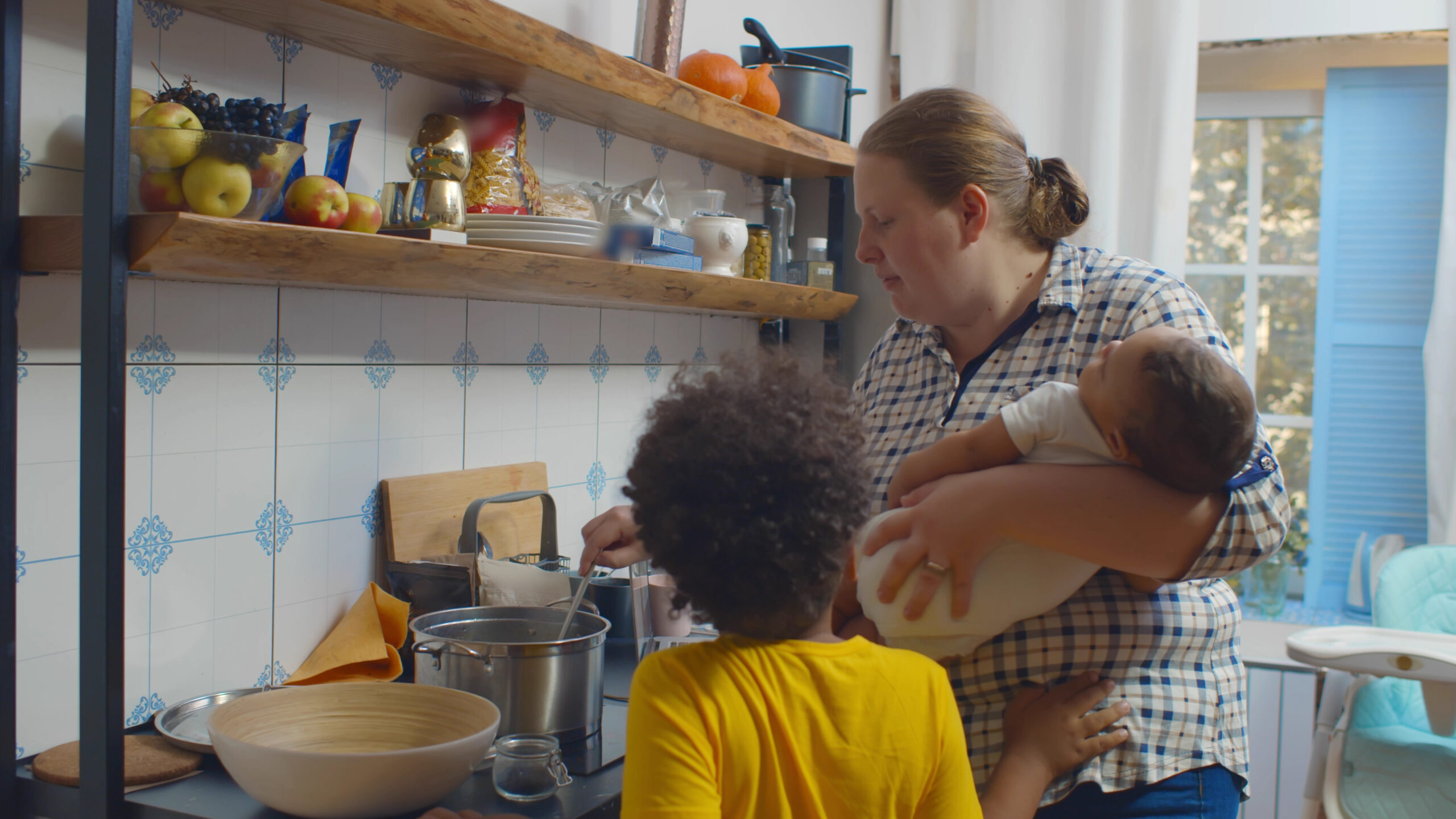
DOMESTIC VIOLENCE AND THE CHILD WELFARE SYSTEM
In 2020, the Pritzker Center and Los Angeles County stakeholders began collaborating on a study concerning the role of domestic violence within the child welfare system. The resulting report, released in May 2021, noted that of nearly 38,618 open cases, at least 19,937—or 51.6 percent—involved a history of domestic violence. The report noted that children may be declared dependent where the court finds the child is neglected due to the survivor parent’s failure to protect the child from the conditions an abusive adult imposes on the household, and that removing children from their homes and placing them in foster care for an isolated domestic violence incident can result in further trauma for both the survivor parent and the children. Accordingly, a subsequent research study was prompted, and a report detailing the current study, conducted in the Antelope Valley, was released in October 2024. The UCLA Pritzker Center’s work on domestic violence is supported by the Blue Shield of California Foundation and J.B. and Emily Van Nuys Charities.
YOUNG ADULTS WHO AGE OUT OF FOSTER CARE
Housing is a key issue among foster children and youth, and the UCLA Pritzker Center’s research director, Dr. Brenda Tully, was awarded a research grant to partner with the Transition-Age Youth Research & Evaluation Hub (TAY-Hub) to investigate barriers and facilitators to housing choice voucher access among young adults who age out of foster care in Los Angeles. Collecting data from multiple perspectives including Black and Latinx young adults, property managers, and housing navigators, the study will make recommendations to improve young adult access to affordable housing after exiting foster care. These have also informed work within the L.A. Mayor’s office and a recent motion from County Supervisor Kathryn Barger.

WORK IN THE ANTELOPE VALLEY
Reaching farther north in Los Angeles County, the UCLA Pritzker Center engages with stakeholders from local agencies, community organizations, and partners in the Antelope Valley, and has identified the need for education of Department of Health Services (DHS) staff and providers in trauma-informed care; the integration of workflows and services to increase support for Antelope Valley families receiving medical services through DHS; and increased inter-agency collaboration between DHS and community partners, including the Department of Mental Health, the Department of Public Health, and other community-based organizations and collaboratives.
Dr. Lisa Gantz, M.D., UCLA Pritzker Center Antelope Valley Child Health and Wellbeing Fellow, has mentored student researchers from the UCLA Pritzker Center to assist in the creation of the Antelope Valley Engagement Network United for Equity (AVENUE). Most recently, the students have been supporting Gantz’ work on an analysis of patient charts to better document the level of Adverse Childhood Experiences (ACEs) in the Antelope Valley.
UCAAN
The UCLA Pritzker Center is finalizing research briefs with Dr. Shannon Thyne, M.D., vice-chair, UCLA Department of Pediatrics and director of pediatrics for the L.A. County Department of Health Services; UCLA-UCSF ACEs Aware Family Resilience Network (UCAAN); and UC San Francisco. The study will use existing data from ACEs-LA screening sites to document how ACE screening/response activities in L.A. County contribute to improved service receipt and advance health care transformation in California and to disseminate that information among practitioner, policymaker, and academic audiences.
“Leveraging the UCLA Pritzker Center’s researchers to support UCAAN and Dr. Thyne is a quintessential example of our collaboration with experts across UCLA and L.A. County,” says Audra Langley, Ph.D., the center’s co-director. “This work has the potential to benefit children statewide and inform practices to serve those healing from adverse childhood experiences.”
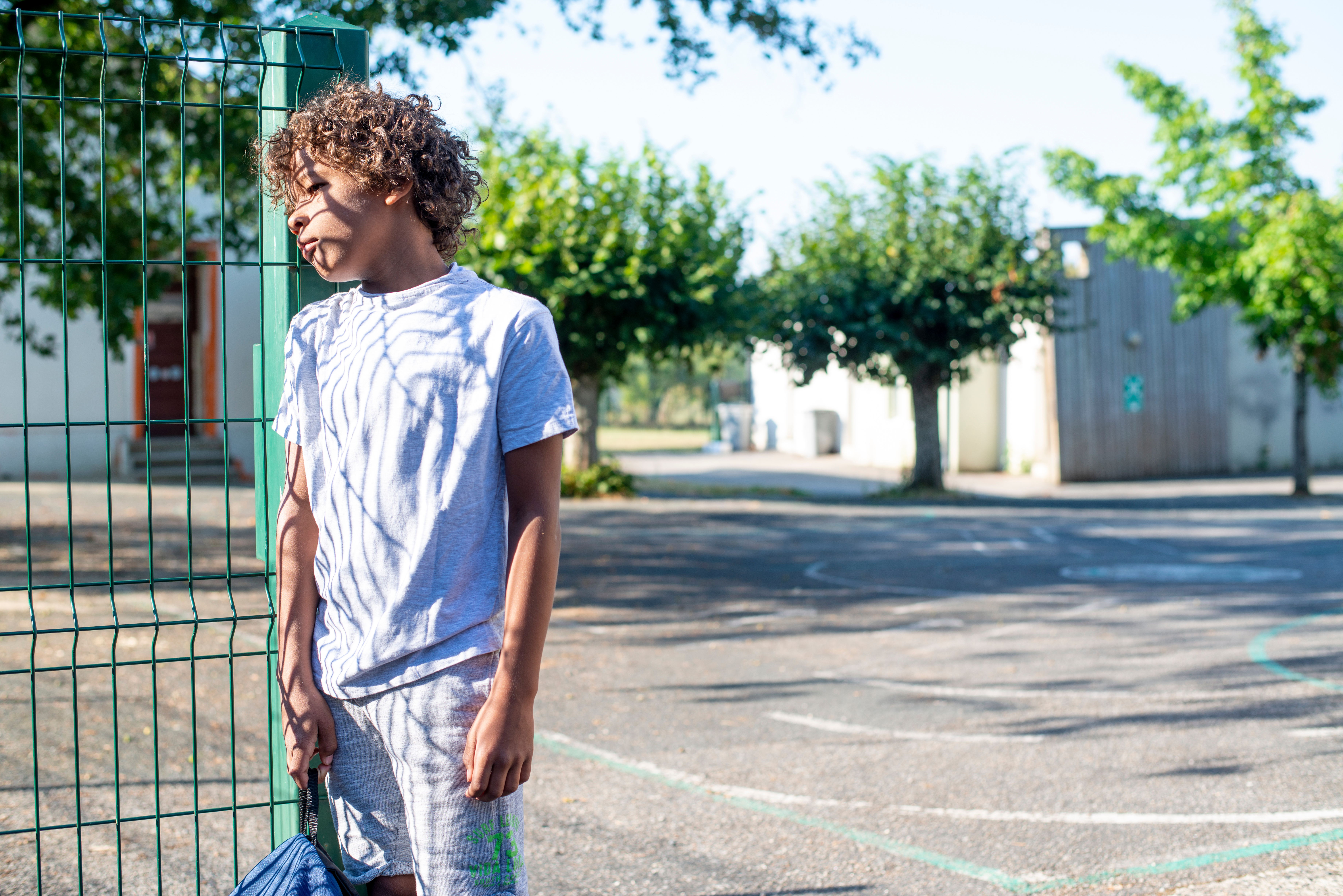
CALIFORNIA COMMUNITY SCHOOLS FRAMEWORK
In alignment with the California Community Schools Framework, community schools implement a “whole child” approach and bring together students, families, educators, community-based organizations, and local government agencies to understand and address the specific needs and goals of each school community. The Pritzker Center and its research partners studied 24 school sites across the L.A. County, including K–8, elementary, middle, and high schools, as well as a continuation school.
“Understanding the links between schools, child welfare system involvement, mandatory reporting and the expansion of community resources is critical toward making system change,” says Professor Howard. “Bringing these issues together in one study helps inform the ways our systems of care must evolve for families to truly thrive.”
Key findings included the ways that community schools are critical support systems that can impact learning trajectories for all students, in particular, foster children and youth, with essential resources such as food, hygiene supplies, and laptops and internet access, as was especially the case during the COVID‑19 pandemic. The study also explored learning environments that promote students’ social-emotional well-being; community school councils and shared decision-making; parent involvement and feedback, with stronger relationships between parents and staff; parent and staff workshops to address professional well-being, effective communication with students, and financial literacy; increasing staff and parent access to student data to monitor student outcomes, school activities, and overall progress; and school practices to coordinate provision of direct services, referrals, and resources to students and families such as tutoring, clothing closets, and dental care.
The UCLA Pritzker Center served as part of the research team in collaboration with the Los Angeles County Office of Education (LACOE), the L.A. County Department of Mental Health, and the UCLA Prevention Center of Excellence, to examine the county’s community schools. Launched in 2019, the LACOE Community Schools Initiative (CSI) is an equity-driven school transformation strategy that uses the community schools’ model to address opportunity gaps, leverage community assets, and ensure all students and schools have the resources they need for success.
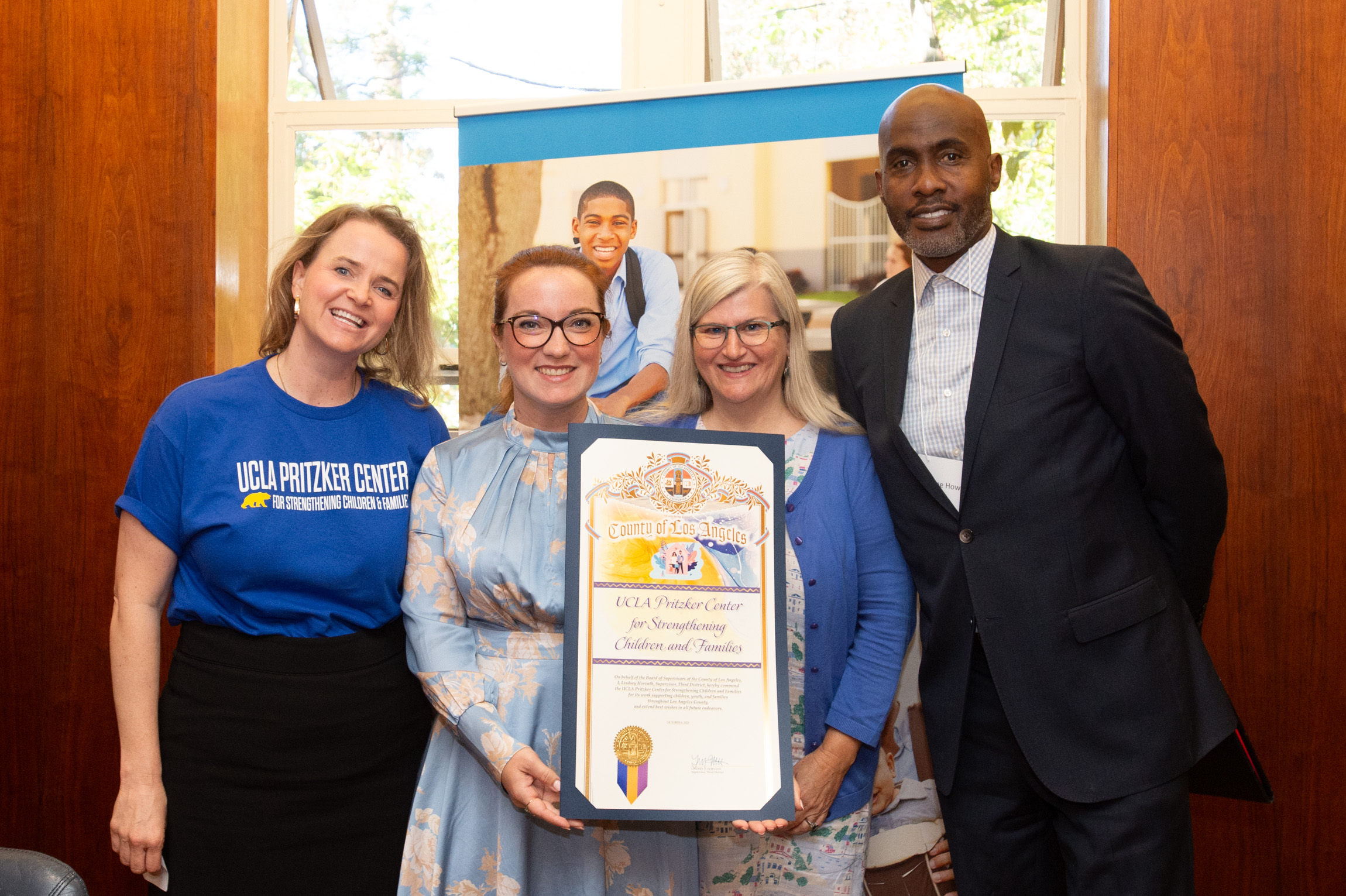
RACIAL INEQUITY DURING THE COVID-19 PANDEMIC
The exposure of profound racial inequity during the COVID-19 pandemic was examined by the UCLA Pritzker Center in the mixed-methods study, “Resource Parents During Two Pandemics: Navigating Racism and COVID-19,” which focused on how a group of racially diverse resource parents navigated the twin pandemics.
The UCLA Pritzker Center is committed to uplifting lived experience, engaging community-based research, and transforming the next generation of child welfare leaders through student development and accessible education available to the public.
“As we celebrate our seventh year, the UCLA Pritzker Center has demonstrated what can be done when UCLA extends itself into the community it serves, both with education and on-the-ground social change,” says Dudley.
Other articles in this issue
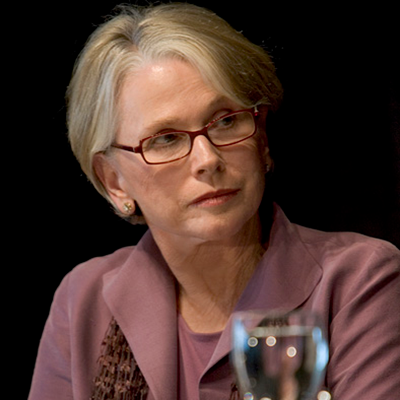
Jeannie Oakes: A Scholar Who Changed The World
Read more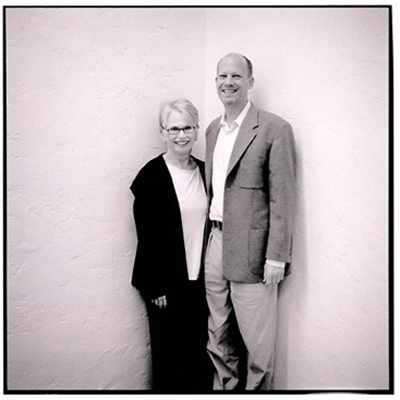
A “Jeannieology”: Jeannie Oakes’ Legacy Lives On in the Friends She Gathered
Read more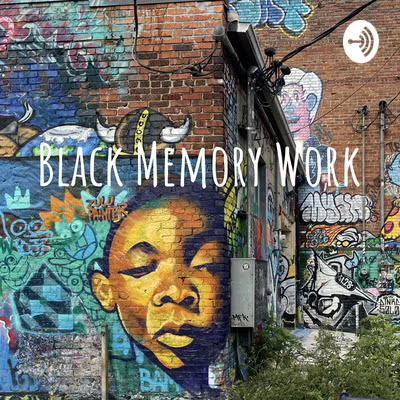

A New Vision for Embracing Queer Students’ Diverse Identities at HBCUs
Q&A with Lori Patton Davis and Book Excerpt
Read more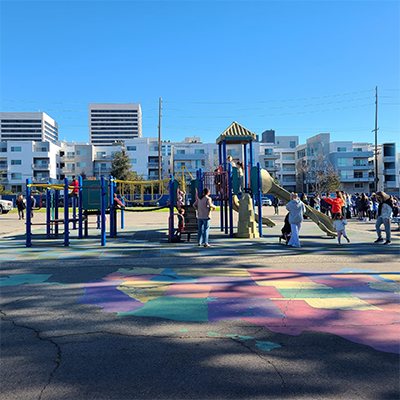
Sarah Bang on the Palisades Fire: Supporting L.A. Schools in Cris
Read more